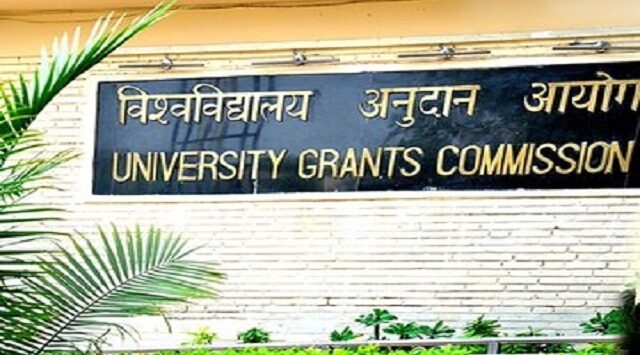UGC declares new framework and curriculum for undergraduate courses
The University Grants Commission (UGC) on Thursday released a draft curriculum framework for the four-year undergraduate programmes.
The University Grants Commission (UGC) on Thursday released a draft curriculum framework for the four-year undergraduate programmes (FYUGP) that will be implemented in all higher education institutions from the academic session 2022-23.
Under the National Education Policy (NEP) 2020, universities and colleges will now offer 4-year undergraduate degrees with multiple exit and entry options. Several universities, including JNU and Delhi University, have already decided to adopt these programmes from this year
The FYUGP is projected to receive clearance from the UGC for both current and former students starting in 2023–2024, when all new students will have the opportunity to choose four-year undergraduate programmes.
This implies that students who enrolled in standard, three-year undergraduate programmes this academic year may also have the option of joining the four-year degree programme beginning with the following session.
The UGC states that all students will have access to a four-year undergraduate programme, but they are not required to enrol in it. A student has the option of finishing the three-year undergraduate programme.
The UGC chairman gave an explanation of the significance of these adjustments, stating that if only new students were given the opportunity to enrol in FYUGP, the programme’s outcomes would be known in four years.
On the other hand, if older kids are given the opportunity to participate, the results will be apparent sooner.
The UGC has sought suggestions from stakeholders on the draft framework by April 4.
The programme is divided into eight semesters and students will require 160-176 credits for a four-year degree with honours/research.
As per the UGC draft document, FYUGP students will study a set of “common” and “introductory” courses in natural sciences, humanities and social sciences during the first three semesters.
At the end of the third semester, students will have to declare a “major”. In addition, a student will also choose two minors relating to a disciplinary or inter-disciplinary area of study.
Students will be awarded with a certificate after completing 1 year (2 semesters) of study in the chosen fields of study, a diploma after 2 years (4 semesters) of study, a bachelor’s degree after a 3-year (6 semesters) programme of study, a bachelor’s degree with honours or research after a 4-year programme.




 Ms Kalinga
Ms Kalinga